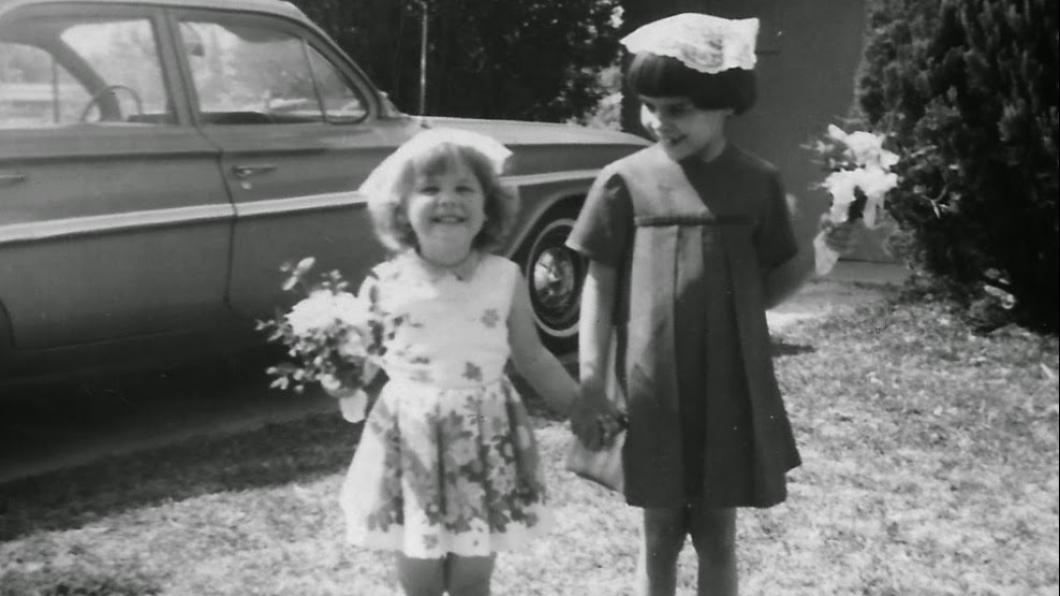
A sister asks 'Do you see me?'
By Cristina Breshears
Dear Mom and Dad:
Even though I was born into the chaotic aftermath of my big sister’s diagnosis, I wasn’t born understanding it. I saw how difficult things were for you: how hard you worked, how hard she worked. I saw the different people come to our house to help. I saw your tears and heard your prayers. But I couldn’t know what was wrong. I didn’t know what to expect or what I should do. It was my everyday normal, it was all I ever knew, but I didn’t know.
I need you to help me ask the hard questions so I can better understand.
Although I could be scared of some of the things that happened in our house, I didn’t know I could come to you for comfort. Sometimes I was sad and sometimes I was angry. And sometimes I really didn’t know how I was feeling. You were so busy helping my sister and you were tired; and I saw how sad you were sometimes. I didn’t know that it would still be okay for me to come to you and tell you all that I was feeling.
I need you to invite me to share.
Because I was the little sister, I didn’t know it was expected that I would someday surpass my big sister’s abilities in walking, in talking, and in school. It felt wrong when I could read the book to my big sister, and sometimes I thought I could see your sadness at those bittersweet milestones. I thought I reminded you of what might have been, and sometimes I felt guilty. I didn’t know it was okay and good for me to grow bigger and stronger and smarter.
I need you to encourage me and celebrate my milestones and accomplishments.
Because my sister needed so much of your time and attention, it sometimes seemed that she was all anyone could see. I didn’t know that my efforts to stay quiet and still, to be good and not make trouble, would eventually lead to me feeling invisible sometimes. I didn’t want to take attention away from her.
I didn’t know it was okay for me to be noticed. I need you to come find me.
Because your two hands were so often full of what needed to be done, I offered my own two small hands to help. It was a way I could be close to you. It was how I could be part of our family whose clock and calendar revolved around my sister.
I need you to remind me that my efforts are appreciated but never expected and that your love for me is not contingent on my always being helpful.
Although standing up for my sister against bullies and discrimination was second nature to me, I didn’t know how to stand up for myself. I could hold her hand and help her hold her head up high, I could fight against injustices and lobby for change, and still feel too inconsequential to stand up for myself.
I need you to show me we are all worth fighting for.
Although you and my sister taught me how to be compassionate and speak out for those who are marginalized, I didn’t know how to show myself that same compassion.
I need you to help me understand that everyone deserves compassion, second chances, a hand-up, a shoulder, an ear, a hug—even me.
I was born three years after my sister’s brain damage. Her diagnosis and its effects were all I ever knew, but I didn’t know.
Love, me
Cristina lives in Portland, Oregon and encourages parents to check out the resources at The Sibling Support Project. 'All the feelings parents experience and share with their therapist, best friend, support group or spouse are also felt by their typical child. But many siblings have nowhere to go with all these feelings.' Sibshops are groups where games, new friends and discussion help siblings see that being the brother or sister of a person with special needs is for some a good thing, others a not-so-good thing, and for many, somewhere in-between. None of this support blames parents, Cristina says, and all of it can be life-affirming for a sibling.
